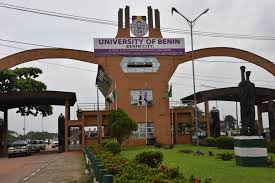Agriculture
From Post-harvest Losses to Post-harvest Gains: Addressing Livestock Feed Challenge

By Joseph Chibueze, Abuja
It is estimated that about one third of the food produced in Nigeria is lost to poor handling and lack of storage facilities after harvest.In fact, the country is said to be losing a whopping N3.5 trillion annually due to post-harvest losses.
Post-harvest loss is a reduction in the value (e.
g., mass, monetary value, or nutritive value) of crops after they are harvested.Most farmers in Nigeria are smallholder farmers and lack access to necessary technology to preserve their crops after harvest. It is a common sight to see large quantities of crops particularly, perishable crops like vegetables and friuts rotting away in farms or in trucks by the roadside as they are conveyed to markets.
Post-harvest loss, which is exacerbated by climate change, contributes to food insecurity and reduces the income of smallholder farmers, processors, service logistics providers, and retailers.
Unfortunately the focus in Nigeria in recent times has been on increasing food production with little or no attention to food preservation and storage. Little wonder, prices of food oscillate from the lowest level during harvest to a very high level few months afterharvest.
A report published in 2013 by Deutsche Gesellschaft für Internationale Zusammenarbeit (GIZ) on food losses in cassava and maize value chains in Nigeria, shows that a total sum of cassava loss at the farm gate and during processing, storage, transport and marketing amounted to around ₦144 billion annually while the total sum of monetary losses in maize value chains amounted to ₦120.4 billion annually.
The agriculture promotion policy (2016-2020), building on the success of the agricultural transformation agenda, closing key gaps by the Federal Ministry of Agriculture and Rural Development, in 2016 revealed that about 700,000 tonnes of tomatoes rot as waste annually out of Nigeria’s yearly harvest of about 1.5 million tonnes.
Besides the financial loss to the farmer, there is also the health implication. According to the World Health Organization (WHO), the cost of foodborne illnesses in Nigeria is estimated at $3.6 billion annually.
It therefore means that If the country can reduce its post-harvest losses caused by loss of quality due to poor handling along the value chain, it can improve not only consumption of healthy foods but reduce the cost of healthcare in the country.
All that is about to change as the Federal Ministry of Agriculture and Rural Development in its quest to find a lasting solution to the astronomical rise in the price of animal feed in the country, is now turning what hitherto was post-harvest waste into useful animal feed ingredients.
Minister of Agriculture and Rural Development, Dr. Mohammed Mahmood Abubarkar in his keynote address at the just concluded Summit on National Livestock Transformation Plan co-organized by the Federal Ministry of Agriculture and Rural Development and Agriculture Correspondents Association of Nigeria said the ministry has initiated what he called National Strategic Animal Feed Development Programme which is aimed at harnessing and converting available alternative feed ingredients such as crop residue and post-harvest materials to low cost climate smart animal feed.
According to him, “This programme has the potential to reduce the rising cost of animal feeds and increase livestock productivity and resilience.”Director, Department of Animal Husbandry Services, FMARD, Mrs. Winnie Lai-Solarin, had earlier in an interview on the sidelines of a recent capacity building programme her department organised for livestock farmers and animal feed millers in Abuja said that the transformation of the livestock sector starts from what the animals will eat.
She said sourcing animal feeds has been one of the major problems encountered in the livestock industry and one of the challenges faced by farmers that has caused them to move from one place to the other. She noted that the cost of feed has become so high that most farmers are leaving the feeds business and even leaving the livestock enterprise.
According to her, “The high cost of feed means that we will have high cost of products. To mitigate all these, the Federal Ministry of Agriculture and Rural Development, through the animal Husbandry Services department envisaged the need for us to begin to mop up what will normally be called waste, post harvest waste as it is popularly called, which actually can be turned to animal feed.
“So at the time of plenty we mop up low grade grains that humans will normally not eat but will not be harmful and will be nutritious for animals and convert them to animal feed. Today we have called some farmers together to train them on how to put these alternative feed ingredients to useful use.”She said the farmers will be trained on what to formulate and what to put together
to get their feed. She added that the participants will also be given some of the ingredients to take to their mills and produce feeds for their animals.
“We will also follow up on these farmers and provide them the facilities they require,” Lai-Solarin said. “We believe that if we do this consistently, we will be able to turn what we call post harvest waste and post harvest losses into useful animal feeds and we will be able to bring down the cost of animal feeds.”
Some livestock farmers expressed optimism that the new strategic feed programme of the government will not only lower the cost of their production, but will also make their business more profitable.
According to Mrs. Lai-Solarin, “This programme will benefit both the crop farmer who will now sell what would have a waste to him to the livestock farmer who will use them as raw materials in the production of feed for his animal.”
Agriculture
Sallah: Ram Traders Lament Rising Preference to Cows

Some ram traders in Lagos State have lamented the preference for cows to rams by Muslim faithful this 2025 Eid Kabir celebration.
The traders disclosed this in interview on Thursday in Lagos.
The traders said that most people prefer to buy cows than rams because of the size and the fact that five families could buy and share for the celebration.
“A ram trader, Mr Ibrahim Hassan, at the Lawanson area of the state, said patronage has been decent, but with an interesting twist.
“The patronage this year is not bad, but I have noticed that people are buying more cows than rams. I believe the reason behind this shift is that cows are more economical and offer better value for money.
“When families or even groups of friends come together, they can share a cow and still fulfil the sacrifice. That way, instead of each person buying a ram for over N500,000, they split the cost.
“The cheapest cow you can get right now is around N800,000, while the cheapest ram starts at about N550,000. Prices also vary depending on the size and weight of the animal.
“I have contacted my sources for more cows, but the market price has gone up since last week. It’s a volatile market, and prices can change quickly,” Hassan said.
Also, Mr Shakiru Gbadamosi, another ram seller at Lawanson, said he noticed that “people are weighing their options this Sallah, and they have been buying more of cows”
“I was surprised to see some buyers turning to cows, and this trend has been on for weeks. Although many still prefer rams for Sallah because it’s about tradition and religious significance.
“The ram is the symbolic animal for the sacrifice, and that’s not something easily replaced.
“Prices have gone up this year, a decent ram now costs between N550,000 and N700,000 depending on the size and breed. But despite that, the demand remains steady.
“Some people have been buying younger rams because they are less expensive but still acceptable.
“The younger rams are sold for between N130,000 and N250,000,” Gbadamosi said.
A buyer, Mr Folajimi Aderibigbe, who confirmed the trend, said buying a cow seems like a better option.
“We are a family of eight, and instead of buying two small rams, we joined with my brother-in-law and bought a cow. It cost us N950,000, but we split it. Everyone still gets to perform their sacrifice and save money.
“Traditionally, rams are the preferred animal for Eid Kabir (Sallah). However, economic realities have changed things, and we must find a way to adapt,” he said.
In a related development, vegetable oil traders said they have observed increased patronage due to the Sallah celebration.
Mrs Linda Nwachukwu, a cooking oil trader at the Lawanson Market, said the demand for cooking oil had increased because of preparations ahead of Sallah.
“The celebration usually increases the demand for groundnut oil. Consumers have been stocking up oil since last week, especially now that there are few days to Sallah.
“Cooking oil prices have risen, but it is cheaper than last December, a 25-litre container cost N110,000, a price that persisted until April 2025.
“A recent price adjustment, just three weeks ago, sets the current rates for groundnut oil at N78,000 for 25 litres, N35,000 for 10 litres, and ₦18,500 for five litres.”
“This is unusual, groundnut oil prices normally surge in December and then decrease by January or February, but it stayed high for a long time,” she said.
Another trader, Mrs Imoleayo Fakunle, said she buys in larger jerrycans and sell in measured portions to customers who cannot afford bigger sizes.
“Not everyone can buy 25 litres or even afford the branded ones, so as a vendor, what I do, is to buy in larger containers and sell in small portions.
“Groundnut oil is expensive, but it is essential. A lot of customers have been buying the measured portions, and they are always happy that they can save money.
“Despite rising prices, customers prioritise the essential ingredient for their celebrations,” she said.
Mrs Taraoluwa Alausa, a consumer at the Idi-Araba Market, said she had learned to prioritize when buying cooking oil since the increase in the price of groundnut oil.
“I purchase measured portions of oil specifically for frying and use a good branded oil for general cooking.
“Lately, I have become more conscious about the type of oil I use. I want something natural and less processed. It’s a bit pricier, but I think it’s good for healthy living.
“However, for this celebration, there is going to be an exception because I will be frying with the measured portions I bought. This way, I can save more and even fry more,” Alausa said. (NAN)
Agriculture
Tiv Monarchs Give Herders Ten Days Ultimatum To Vacate Tiv Kingdom

By David Torough, Abuja
The Tiv Area Traditional Council during its emergency meeting held yesterday in the palace of the Tor Tiv in Gboko requested the Governor Hyacinth Alia led administration to create an enabling environment to allow herders’ peaceful exit of farmlands in Tiv Kingdom to facilitate resumption of farming activities.
Consequently, the Council directs political and traditional rulers in each local government area of Tiv Kingdom to peacefully engage the herders to ensure their exit from the local government areas to allow farming resumes.
The Council which was chaired by the Tor Tiv himself, HRM Prof James Ortese Iorzua Ayatse CFR equally appealed to all herders in Tiv Kingdom in Benue State to vacate all Tiv lands before the end of May 2025 to allow farmers return and cultivate their farms in order to avoid the looming hunger in Nigeria.
According to a Communique signed by the Secretary of the Council Mr Shinyi Tyozua which deliberated particularly on the security situation in Tiv Kingdom the Council enumerated the communities worst affected to include those in Kwande, Katsina Ala, Logo, Ukum, Guma, Makurdi, Gwer West Gwer East and Buruku Local Government Areas.
The Council lamented that farming activities in the kingdom have ceased due to the occupation of farmlands by herders for grazing and attacks and killings of farmers who fled stressing that if the situation continues it will ultimately result to hunger in Tiv Kingdom and Nigeria as a whole.
Agriculture
Ondo Govt. Destroys 200kg Seized Cocoa Adulterants

The Ondo State Government, on Thursday, destroyed 200kg adulterants used for adulteration of cocoa beans, seized from a merchant in Ondo West Local Government Area of the state.
Mr Segun Odusanya, Permanent Secretary in the Ministry of Agriculture and Forestry (Forestry and produce sub section), supervised the destruction of the 200kg bags of seized adulterants.
Odusanya explained that the destruction was part of government efforts to ensure that the state maintained quality cocoa production in the country.
“Mr governor, Lucky Aiyedatiwa, has reiterated the commitment to ensure the state remains the highest producing state with good cocoa quality
“Anyone caught engaging in illegal activities will be prosecuted accordingly.
“Moreover, this action was embarked on to warn cocoa merchants, who intend to engage in illegal activities, to rethink before getting into it.
“We are going to seal any store caught in such illegal activities, the products will be burnt while the merchant will be prosecuted according to the laws of the land.
“If we are saying we are the highest cocoa producing state and we continue to encounter this scenario, it will give us a bad publicity.
“The bad publicity will be in the country and extend to the international market, and we don’t want that,” he said.
The permanent secretary, therefore, commended Aiyedatiwa for graciously approving the recruitment of 60 new staff to checkmate the activities of cocoa merchants in the state.
“Mr governor has supported us, he has said we should recruit more people to guide against any adulteration and ensure we have a good quality cocoa beans.
“I must commended our task force committee for ensuring that the state holds its position in the country and the international market,” he said.
Earlier, Mr Tunji Akinnadeju, a Director of Produce (DP3) in the Grading and Allied Department of the ministry, said the adulterants were intercepted at Ondo West Local Government Area of the state.
Akinnadeju said that the owner of the adulterants took to his heels at the time of arrest.
“As we all know that cocoa is being sold in weight and after adding all these things, it will be sold at high prices, which is not good enough.
“So, doing that will bring a lot of damage to the image of the state and the country at large in the international market,” he said.
Also, Mr Sunday Adegbola, a Director of Produce Licensing in the ministry, said the merchants’ actions could affect people during consumption of the cocoa products, if care was not taken.
Adegbola, who pledged that the ministry would not rest until the state was free from adulterated cocoa beans, said the nefarious action could be attributed to the price tag at the international market.
“It is the price at the international market and the price is better for the farmers, not for the people who use adulterants.
“With this action, many people will drink cocoa as a chocolate powder and other materials from cocoa beans which has been adulterated.
“The consumption of these chemical products will also affect humans,” he said. (NAN)

















